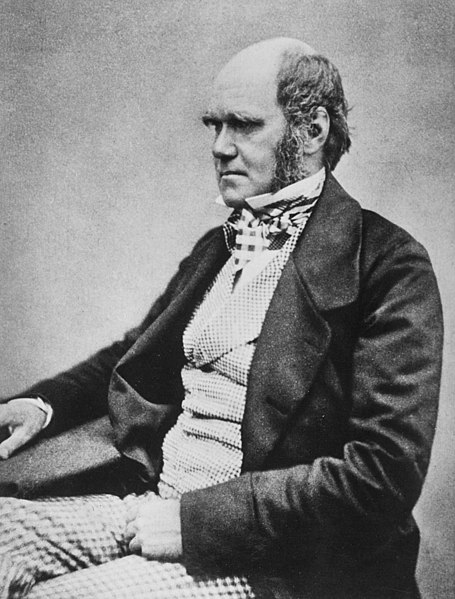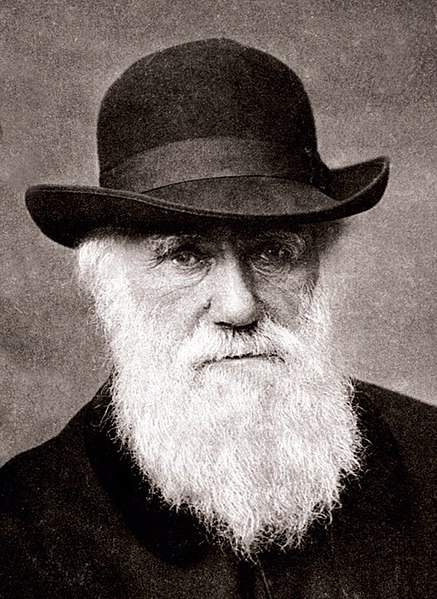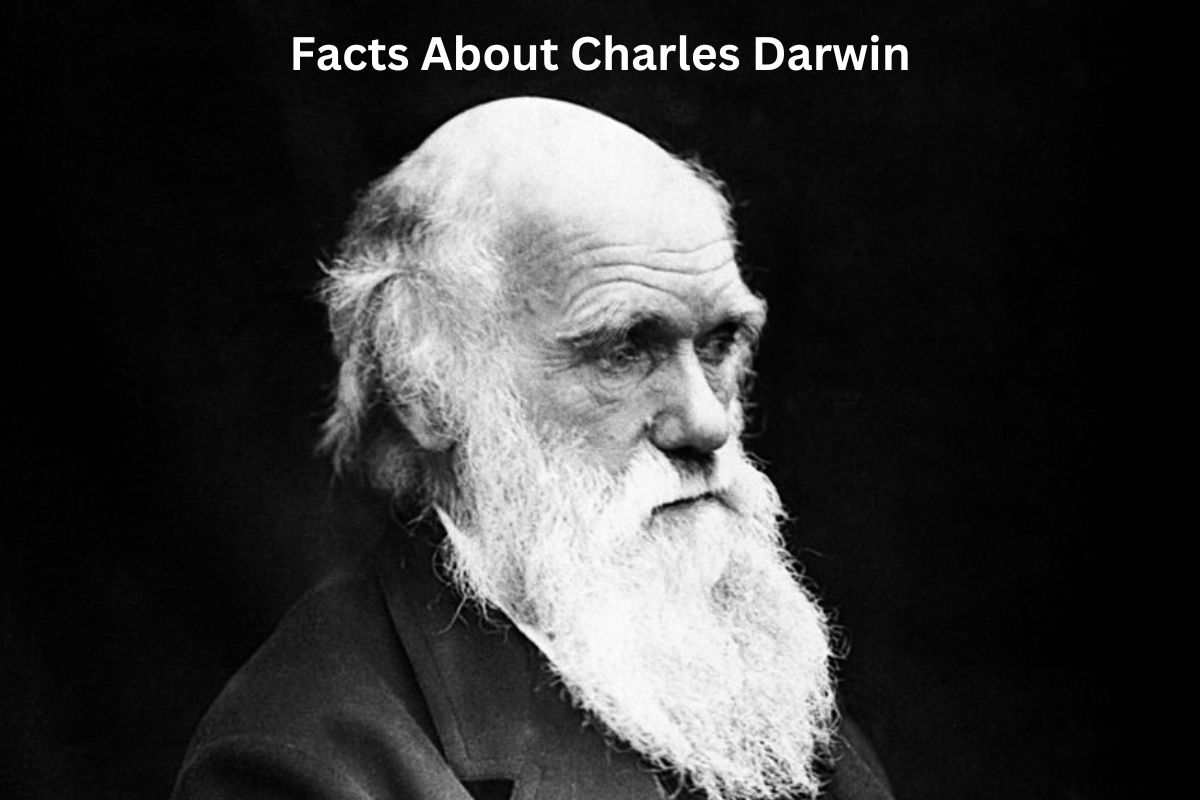Charles Darwin, born on February 12, 1809, in Shrewsbury, England, was a renowned scientist who revolutionized the fields of biology and natural science.
He is best known for his theory of evolution by natural selection, which he detailed in his groundbreaking book “On the Origin of Species.”
Darwin’s theory proposed that species evolve through the process of natural selection, where individuals with advantageous traits are more likely to survive and reproduce, leading to the gradual modification and diversification of species over time.
His work faced significant controversy but eventually gained widespread acceptance. Darwin’s contributions to science extended beyond evolution, encompassing geology, botany, and anthropology. His meticulous observations, extensive studies, and experiments continue to shape our understanding of the natural world.
Darwin passed away on April 19, 1882, leaving a lasting legacy as one of the most influential figures in scientific history.
Charles Darwin Facts
1. Born on February 12, 1809, in Shrewsbury, England
Charles Darwin was born on February 12, 1809, in Shrewsbury, England. He was the fifth of six children born to a wealthy and prominent family.
Also Read: Charles Darwin Timeline
His father, Robert Darwin, was a successful physician, and his mother, Susannah Darwin, came from the Wedgwood family, known for their pottery business.
Growing up in a well-off household provided Darwin with resources and opportunities for education and exploration.

2. Proposed the theory of evolution by natural selection
Darwin’s most significant contribution to science is his theory of evolution by natural selection.
This theory suggests that all species of organisms have descended from common ancestors and that the diversity of life on Earth is the result of a gradual process of modification and adaptation over millions of years.
Also Read: Accomplishments of Charles Darwin
Darwin’s theory challenged prevailing religious and scientific beliefs, as it proposed a natural explanation for the origin and diversity of species.
3. Traveled on the HMS Beagle from 1831 to 1836
To gather evidence for his theory, Darwin embarked on a monumental voyage aboard the HMS Beagle from 1831 to 1836. As a naturalist on the ship, he traveled to various locations around the world, including the Galápagos Islands, South America, Australia, and Africa.
During this expedition, Darwin collected specimens, made detailed observations of plants and animals, and studied geological formations. These experiences and observations provided him with valuable insights and evidence that formed the foundation of his later work on evolution.
4. Published “On the Origin of Species” in 1859
In 1859, Charles Darwin published his groundbreaking book, “On the Origin of Species.” The book presented his theory of evolution and provided a comprehensive body of evidence supporting the concept of natural selection.
Also Read: Famous Botanists
Darwin’s work in “On the Origin of Species” revolutionized the fields of biology, paleontology, and anthropology. It sparked intense debate and controversy, as it challenged religious beliefs about the creation of life and the fixity of species.

5. Faced controversy and resistance to his ideas
Darwin’s theory of evolution faced significant opposition from both religious and scientific communities.
Many religious individuals viewed his ideas as contradicting the notion of divine creation. Scientists at the time also held differing views on the mechanism of species change, and some rejected Darwin’s theory due to the lack of a clear understanding of inheritance and genetics.
However, over time, as additional evidence emerged and scientific knowledge advanced, Darwin’s theory gained widespread acceptance and is now considered one of the foundational concepts of modern biology.
6. Married his cousin, Emma Wedgwood
In 1839, Darwin married his first cousin, Emma Wedgwood. They had a loving and supportive marriage that lasted throughout their lives. Emma provided emotional and intellectual support to Darwin, even though she had reservations about some of his scientific views.
They had ten children together, and their family life was marked by tragedy as three of their children died at young ages.
Darwin’s concerns about the potential effects of inbreeding, due to his marriage to a close relative, motivated him to conduct experiments on plants, which helped him understand the principles of heredity and variation further.
7. Conducted experiments on plants to study inheritance
As part of his scientific investigations, Charles Darwin conducted extensive experiments on plants to study inheritance and variation.
One of his notable experiments involved cross-breeding different varieties of plants, such as orchids and peas, to observe the traits that were inherited by subsequent generations.
These experiments provided empirical evidence for the concept of heredity and supported Darwin’s ideas on how variation within a species could lead to adaptation and evolution.
8. Studied barnacles extensively
Darwin’s fascination with barnacles led him to undertake a comprehensive study of these marine organisms.
From 1851 to 1854, he published a four-volume monograph titled “A Monograph on the Sub-Class Cirripedia” which detailed his meticulous observations, classification, and description of various barnacle species.
Through his study of barnacles, Darwin gained insights into the principles of variation, adaptation, and speciation, which further reinforced his understanding of the evolutionary process.
9. Made contributions to geology, botany, and anthropology
Charles Darwin’s scientific contributions extended beyond the theory of evolution. He made significant contributions to the fields of geology, botany, and anthropology.
Darwin’s geological observations during his voyage on the Beagle and his subsequent studies of geological formations helped him understand the vast timescales involved in Earth’s history and provided evidence for gradual changes occurring over long periods.
He also conducted extensive botanical research, studying plant morphology, reproduction, and the co-evolution of plants and insects. Furthermore, Darwin’s interests in anthropology led him to explore human evolution and the origins of human behavior.
10. Died on April 19, 1882, in Downe, England
Charles Darwin passed away on April 19, 1882, at the age of 73, in Downe, England. Despite his controversial ideas during his lifetime, Darwin’s contributions to science and our understanding of the natural world have had a lasting impact.
His work continues to be widely studied and celebrated, and he is regarded as one of the most influential figures in the history of science. Darwin’s theory of evolution remains a cornerstone of biology and continues to shape scientific research and our understanding of the diversity of life on Earth.
